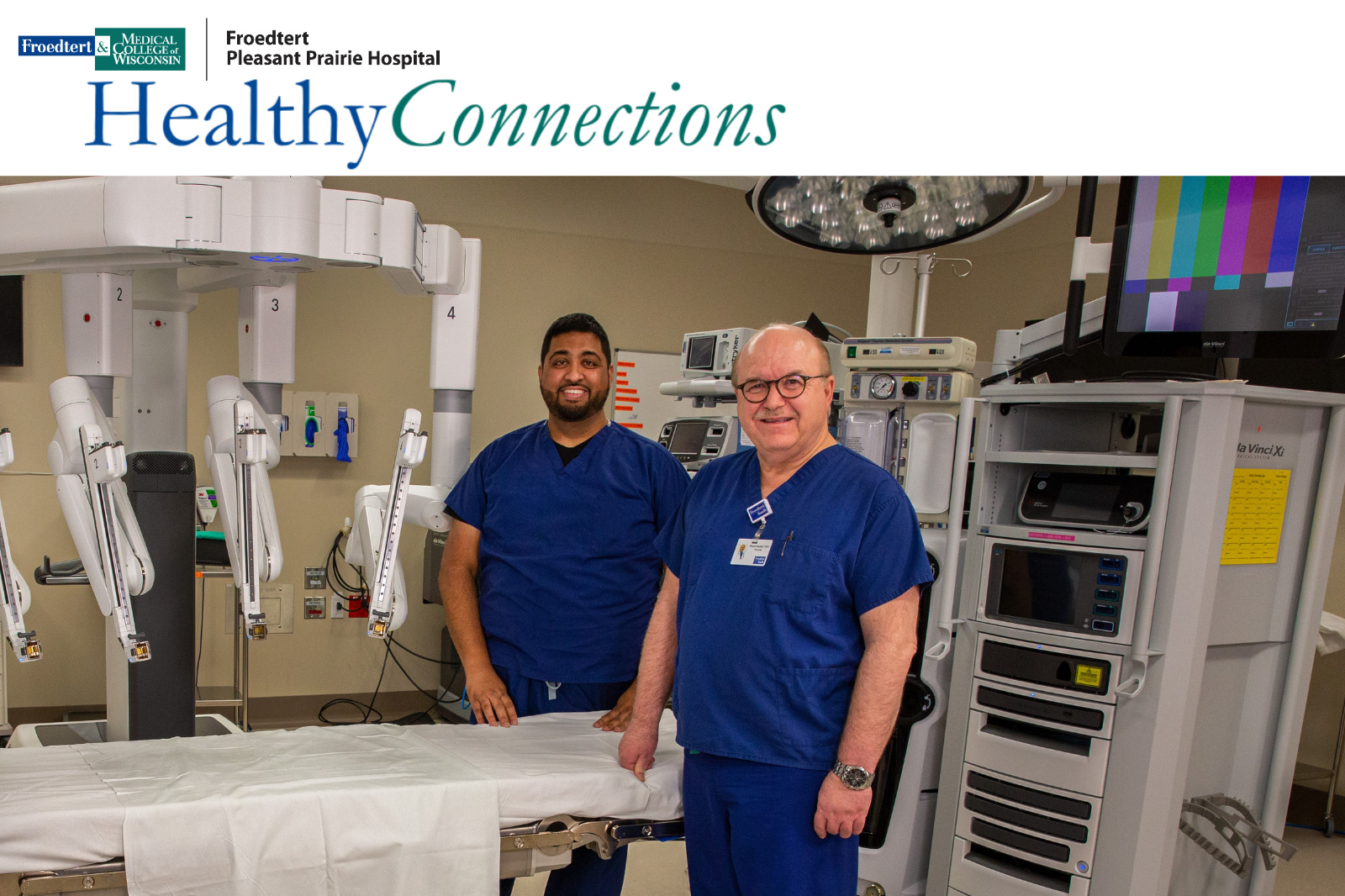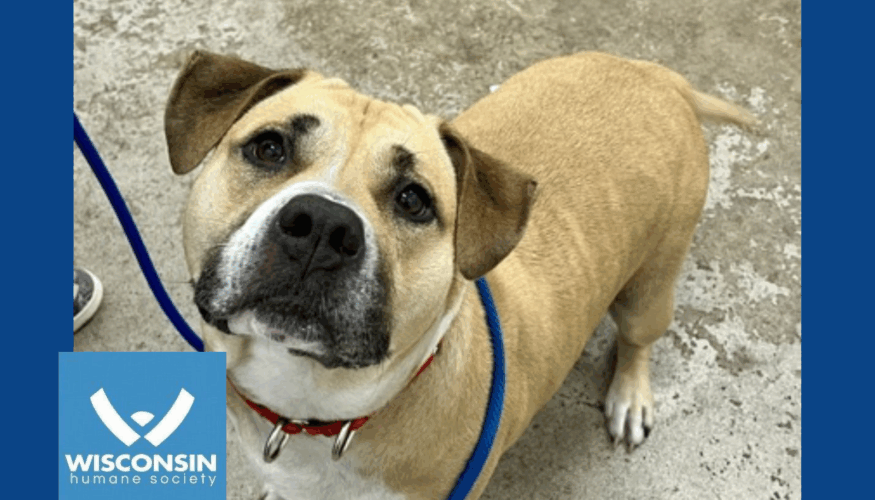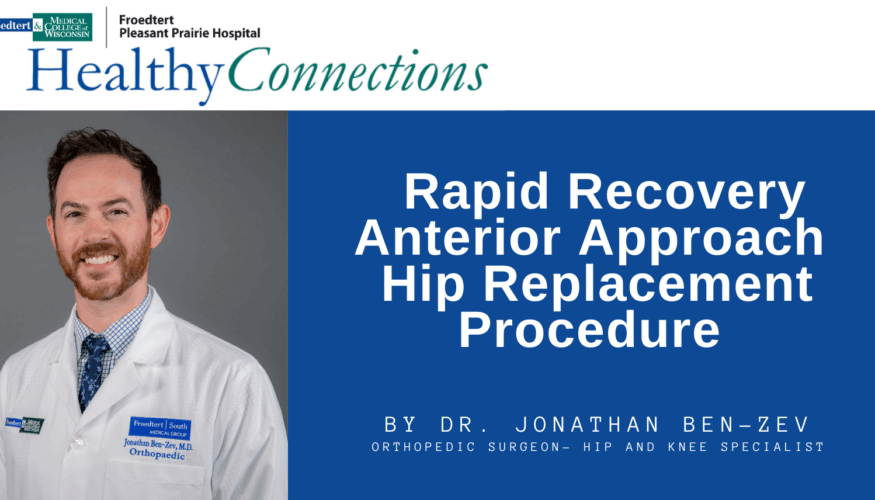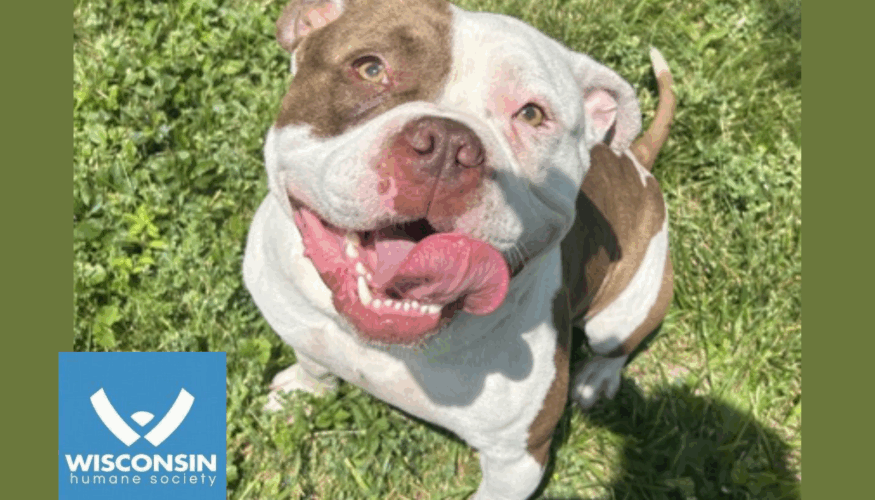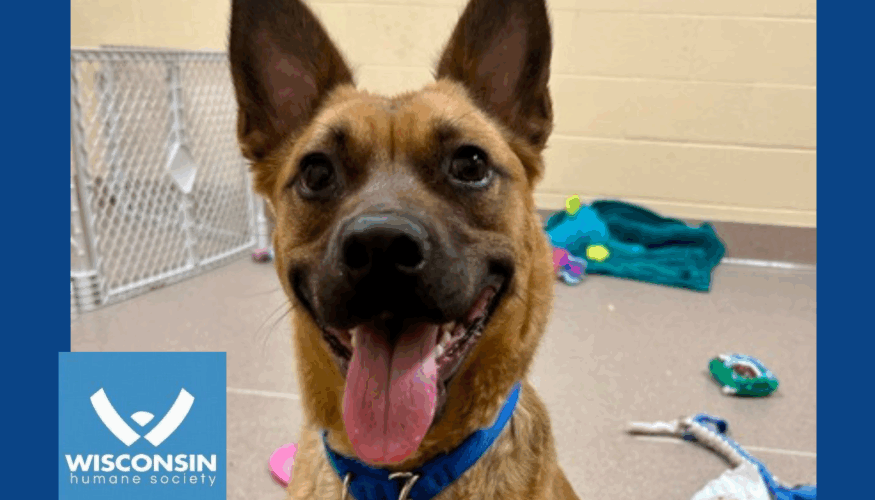General surgery covers almost everything from elective to emergency surgeries, and Dr. Badrudduja and Dr. Jandali have the on-going education and skills to relatively do it all. Two of the most common elective surgeries performed by these surgeons are weight loss and gallbladder removal surgeries. Let’s learn more about the options and reasons to consider these types of elective surgeries.
IS WEIGHT LOSS SURGERY RIGHT FOR ME?
“Weight loss surgery is not the first weight loss option,” said Dr. Majed Jandali, Froedtert Pleasant Prairie Hospital General Surgeon. “Surgery is the last option, but it is a good option for some patients that need to lose weight to reduce comorbidities such as hypertension, diabetes, joint pain, and sleep apnea. Most often, a patient has weight loss surgery to lose enough weight to then be a candidate for hip or knee replacement surgery. A weight loss surgery consultation helps to determine the patient’s struggles and goals as well as evaluate the patient’s weight associated diseases (comorbidities). We educate patients on the risks and rewards of weight loss surgery as well as the commitment required to ensure long-term weight loss.”
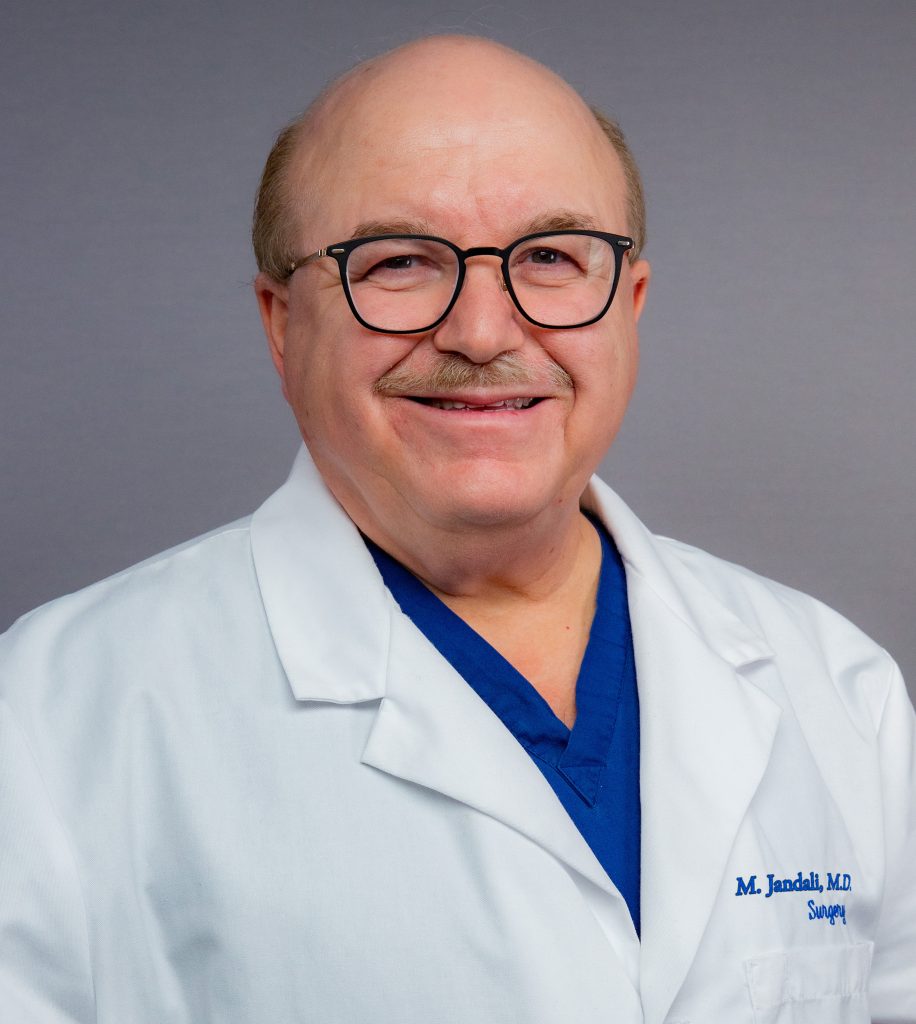
Dr. Mustafa Badrudduja, Froedtert Pleasant Prairie Hospital General Surgeon, said, “Patients have options with weight loss surgery, and we strive to thoroughly educate each patient on the different types of procedures. We answer patient questions and communicate in terms that they can easily understand. It is always a joint decision-making process along with the patient to determine the route they would like to go with their weight loss journey.”
Weight loss (or bariatric) surgeries at Froedtert Pleasant Prairie Hospital are almost all performed as minimally invasive robotic surgeries. These types of procedures lend themselves to quicker recovery times. One option is gastric bypass. With a gastric bypass procedure, a small new stomach is constructed off the main stomach, and the small intestine is cut and reattached to the new stomach pouch. Less food can be eaten comfortably at one time, and with food spending less time in the digestive tract, fewer calories are absorbed. Dr. Badrudduja said, “Gastric bypass is an excellent procedure with a lower rate of weight regain. However, the bypass changes the anatomy of the abdomen, and less people choose this option because it is more invasive.”
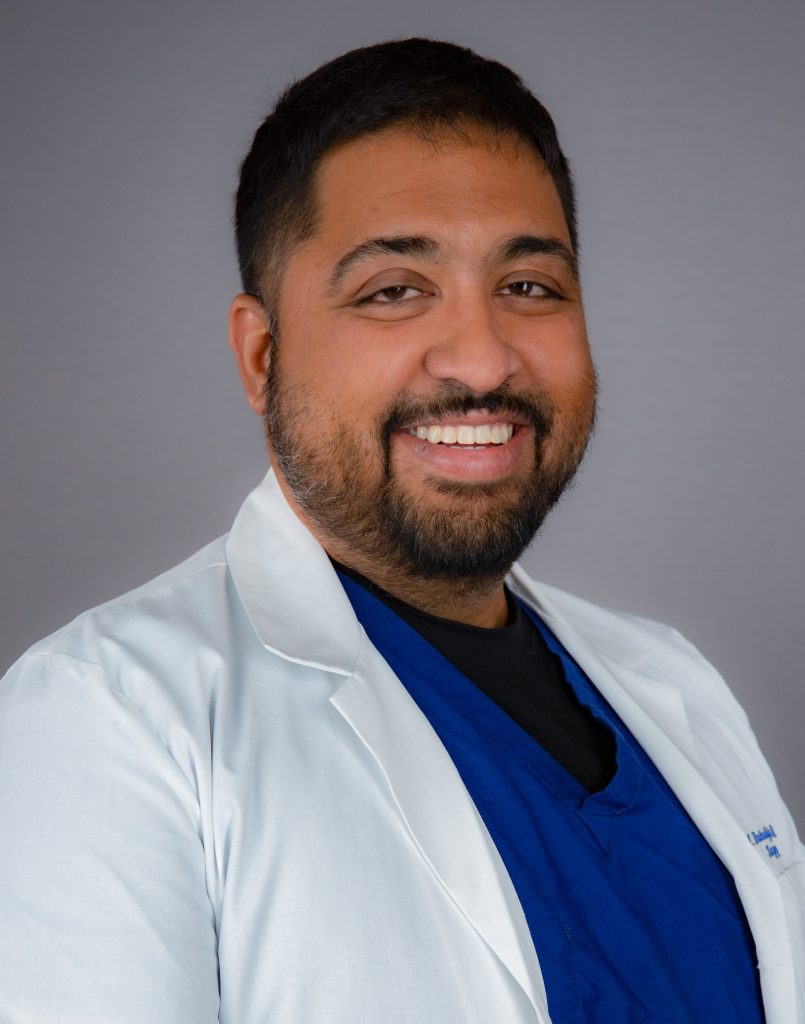
The second option is a sleeve gastrectomy. With the sleeve procedure, a portion of the stomach is removed, including the hunger portion, resulting in a smaller, banana-shaped stomach. The patient will then feel full when eating only a small amount of solid food. “While the sleeve forces you to eat less, it can make reflux worse. The good thing about the sleeve is that your anatomy does not change much,” said Dr. Jandali.
Serious consideration goes into every decision to move forward with weight loss surgery. “Once we have determined that surgery is the right option and which type of surgery to perform, there are still a lot of steps before we ever enter the operating room,” said Dr. Jandali. “Each patient receives about six months of pre-operative education to be successful. This education includes nutritional counseling, psychiatric evaluation, and exercise. The patient also works with Dr. Ramadani, Froedtert South Medical Group Family and Obesity Medicine Physician, on how to achieve and maintain weight loss. We invest a lot of time with every patient so that they understand the long-term process they are getting into and what it will take for lifelong weight management.”
“I LOST 300 POUNDS WITH THE SLEEVE! I NO LONGER HAVE HIGH BLOOD PRESSURE OR DIABETES AT ALL!”- ROBERT WINKLER
Three years ago, Robert Winker weighed 510 pounds, had diabetes and high blood pressure, and struggled with a family cycle of obesity. “I was hospitalized with diabetic ketoacidosis, and I knew I needed to change my life,” said Robert. “I scheduled a consultation with Dr. Jandali. Dr. Jandali was straight forward with the complications, expectations, and options for me. I felt extremely comfortable and confident working with him, and I began to focus on my weight loss journey. With all the weight management and nutrition education I was receiving, I lost approximately fifty pounds prior to surgery. The process was challenging but also incredibly rewarding.”

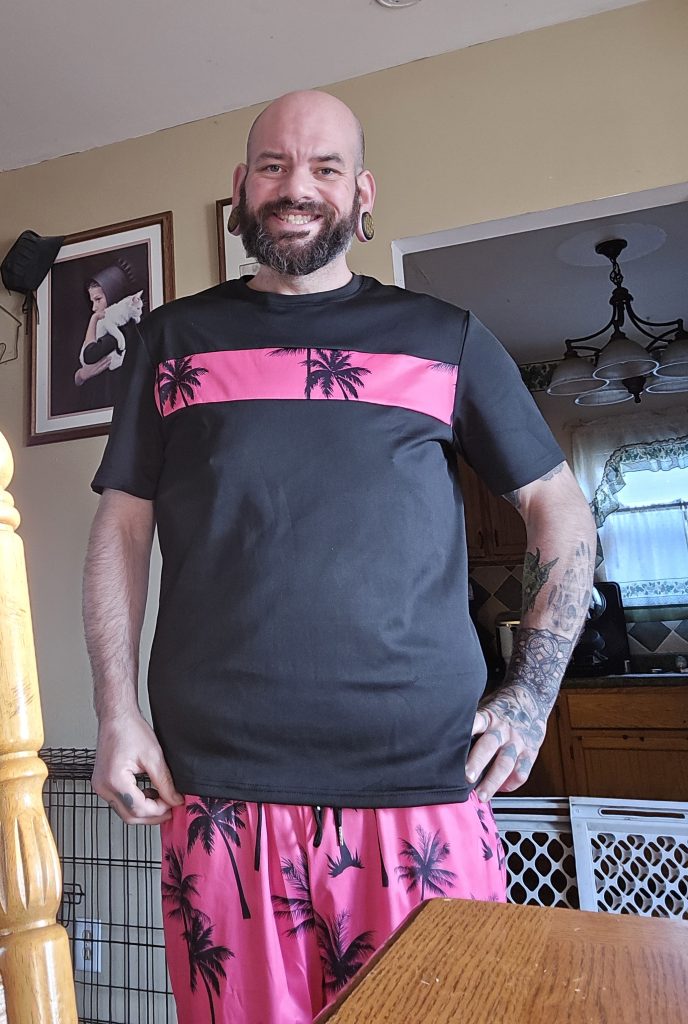
When Robert had his surgery, he said he woke up feeling sore but that he felt well overall. After a couple days in the hospital, he returned home and stuck to a strict liquid diet for three weeks and then slowly introduced soft foods. After another two weeks, he embraced a new lifelong weight management style of eating along with a regiment of exercise.
“I lost 300 pounds with the sleeve! I no longer have high blood pressure or diabetes at all! I got rid of all those comorbidities that were destroying my health,” said Robert. “Prior to surgery, even with medication, my resting heart rate was too high, and my diabetes wasn’t under control. Now, I don’t need medication and my A1C is perfect. I am a totally different human having lost several hundred pounds. I can play with my two sons, which makes me incredibly happy. I have regular six-month follow-up appointments, and I continue to keep all the weight off. I live in Kenosha, and this whole process has been so convenient for me with all my appointments being close by and easily accessible. Dr. Jandali is amazing, and I owe my good health to him!”
“SURGERY IS NOT THE EASY WAY OUT. YOU STILL NEED TO PUT IN THE WORK WITH A LIFESTYLE CHANGE.”- TERI GAMBLE
“I was always hungry,” said Teri Gamble. “I never felt full, and I discussed this with my doctors for several years. When I had cancer, Dr. Jandali put my port in. I went through chemo and radiation, and Dr. Jandali would check up on me and advocate for me. I appreciate how kind and knowledgeable he is. I completely trust Dr. Jandali. Certain medications I took led to weight gain, and when I decided to pursue a surgical weight loss option, I knew I wanted to consult with Dr. Jandali.”
Teri chose the gastric sleeve option, and in less than a year she has lost over 130 pounds. “Surgery is not the easy way out. You still need to put in the work with a lifestyle change,” said Teri. “While the sleeve helped me with my appetite, the nutritional education helped change my whole mindset of what I’m eating and what I’m doing. Now, I take a walk when I get home instead of sitting on the couch. I do some weight training instead of watching one more TV show. The surgery is a tool, but it’s a tool that will only work if you make the necessary lifestyle improvements.”

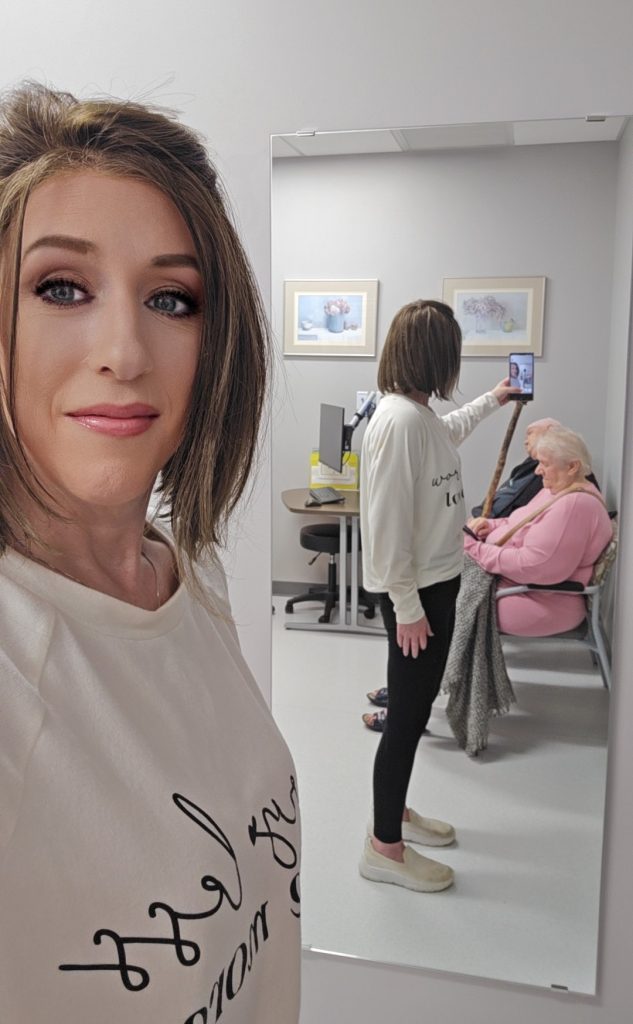
Teri said, “From my cancer treatments to my weight loss surgery, I chose Froedtert Pleasant Prairie Hospital, and I am so grateful for the care I received there. The collaboration is evident between the different doctors and departments, and having all my appointments close to home was very convenient for me and my family. I wholeheartedly thank Dr. Jandali and the entire team for helping me on my wellness journey.”
GALLBLADDER REMOVAL CAN BE ELECTIVE FOR RECURRING ISSUES
The gallbladder is a small organ that stores and releases bile to help digest fats. Hardened deposits of bile form gallstones. Gallstones can cause pain, inflammation or blockage. Gallstones, cancer, infections or other gallbladder dysfunctions can lead to severe infections or even death. Undergoing emergency gallbladder surgery is not the only solution. Preemptive gallbladder removal can be a safer option for some patients.
Dr. Badrudduja said, “If a patient has recurring abdominal pain with greasy food or fast food, they may benefit from gallbladder removal. Sometimes gallbladder pain can be mistaken for heartburn or reflux. If the symptoms get worse and more frequent, gallbladder surgery can be planned instead of waiting for an emergency removal situation. It is much better to catch symptoms early. Talk with your primary care physician or call us for an evaluation.”
For more general surgery information or to schedule a consultation, call (262) 551-4002.
